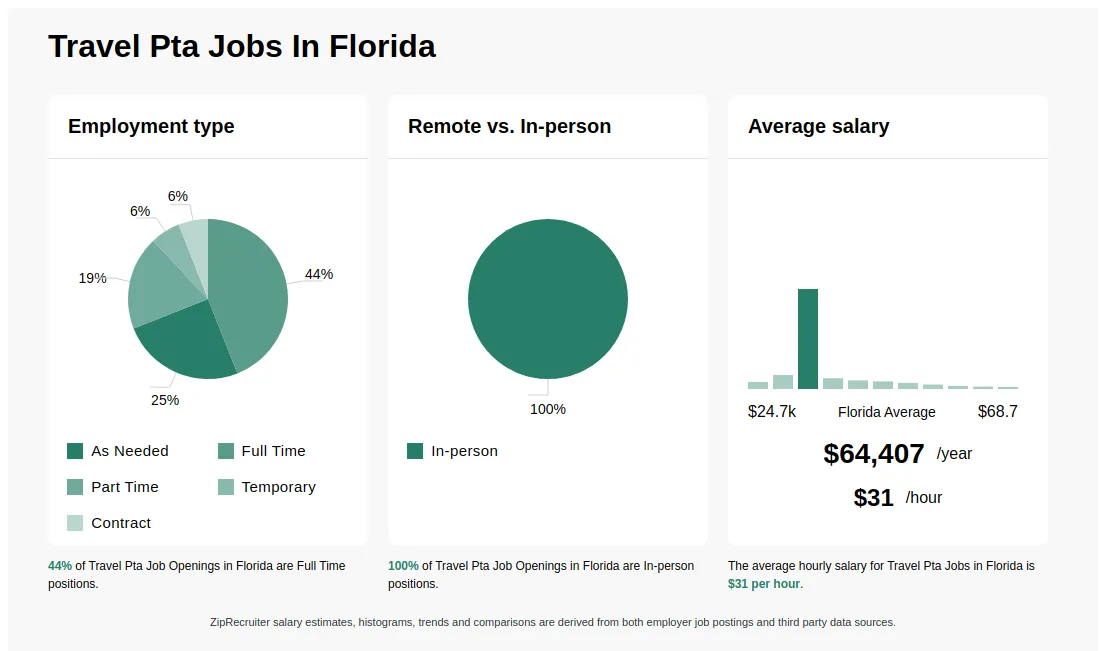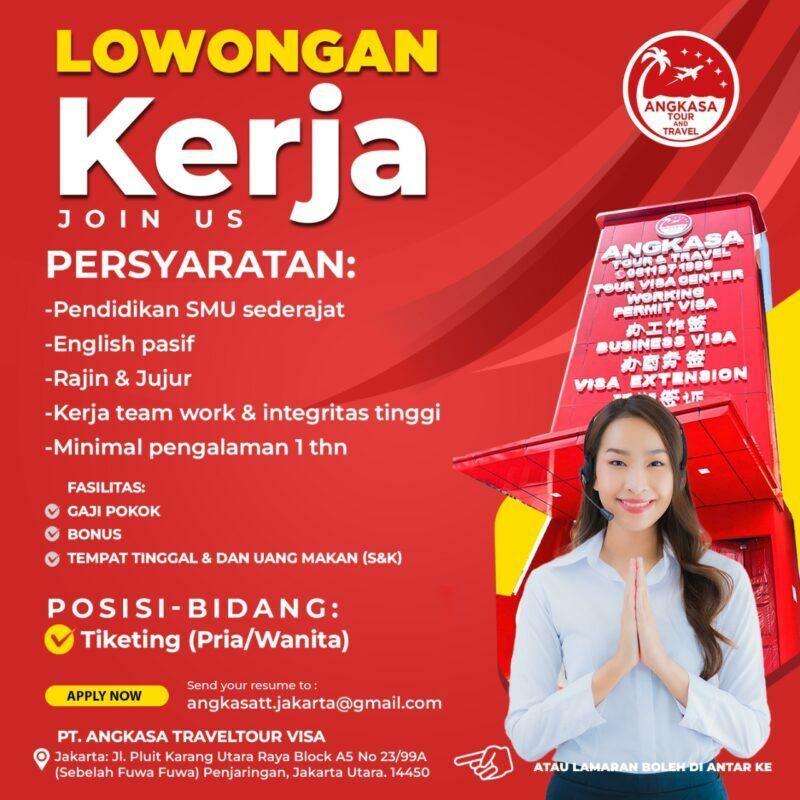The Travel PTA Job Market: A Comprehensive Guide: Travel Pta Jobs

Travel pta jobs – The travel physical therapist assistant (PTA) market presents a unique blend of professional challenge and personal fulfillment. This guide offers a detailed overview of the current job landscape, required skills, application process, compensation, lifestyle considerations, and resources to help you navigate this dynamic career path.
Job Market Overview for Travel PTA Positions
Demand for travel PTAs is currently strong, driven by a persistent shortage of qualified physical therapist assistants across the nation. Hospitals, clinics, skilled nursing facilities, and outpatient rehabilitation centers frequently utilize travel PTAs to fill staffing gaps and address fluctuating patient needs. Consequently, many lucrative opportunities exist for skilled and certified professionals.
Geographic areas with the highest concentration of travel PTA jobs often correlate with regions experiencing high population growth, aging populations, or a higher prevalence of chronic conditions requiring physical therapy. States like California, Texas, Florida, and New York consistently show a high demand for travel healthcare professionals, including PTAs.
Travel PTA salaries generally exceed those of staff PTAs due to the added flexibility and demand. The difference can be substantial, with travel PTAs often commanding higher hourly rates and earning additional stipends. This compensates for the unique challenges and lifestyle adjustments inherent in travel assignments.
| State | Average Hourly Rate | Average Weekly Pay | Average Annual Salary (Estimate) |
|---|---|---|---|
| California | $50-$65 | $2000-$2600 | $104,000-$135,200 |
| Texas | $45-$55 | $1800-$2200 | $93,600-$114,400 |
| Florida | $48-$60 | $1920-$2400 | $99,840-$124,800 |
| New York | $55-$70 | $2200-$2800 | $114,400-$145,600 |
Required Skills and Qualifications

Employers seeking travel PTAs prioritize candidates with a strong clinical foundation, adaptability, and excellent communication skills. Specific requirements can vary slightly depending on the healthcare setting.
A current and valid PTA license is essential, along with graduation from an accredited PTA program. Certifications such as those offered by the American Physical Therapy Association (APTA) can enhance your candidacy and demonstrate a commitment to professional development. Experience in various treatment modalities and patient populations is highly valued, as is the ability to quickly adapt to different electronic health record (EHR) systems.
Requirements across different healthcare settings may emphasize specific skills. For example, a hospital setting might prioritize experience with acute care patients, while a skilled nursing facility may emphasize geriatric care expertise. Clinics often require strong assessment and treatment planning skills.
- Excellent communication and interpersonal skills
- Strong problem-solving and critical thinking abilities
- Adaptability and flexibility to new environments
- Proactive and self-motivated work ethic
- Time management and organizational skills
The Application and Interview Process
Applying for travel PTA jobs typically involves submitting a comprehensive resume and a tailored cover letter highlighting relevant experience and skills. Networking within the healthcare community and utilizing online job boards and staffing agencies are crucial for identifying opportunities.
Effective networking strategies include attending industry conferences, connecting with recruiters on LinkedIn, and engaging with professional organizations like the APTA. Preparing for interviews involves researching potential employers, anticipating common interview questions, and developing concise and impactful responses showcasing your skills and experience.
Successfully navigating the interview process requires demonstrating enthusiasm, professionalism, and a clear understanding of the travel PTA role. Highlighting your adaptability, problem-solving skills, and commitment to patient care is essential.
Sample Interview Question: “Describe a challenging patient case you encountered and how you successfully adapted your treatment plan.”
Strong Answer: “In my previous role, I worked with a patient recovering from a stroke who experienced significant frustration and limited mobility. Initially, the prescribed treatment plan wasn’t yielding the desired results. I collaborated closely with the physical therapist and occupational therapist, adapting the plan to incorporate techniques that better addressed the patient’s emotional and physical limitations. Through consistent encouragement and modified exercises, we achieved significant progress, improving both the patient’s mobility and overall morale.”
Compensation and Benefits Packages

Travel PTA compensation typically includes a competitive hourly rate, weekly pay, and comprehensive benefits packages. Hourly rates vary based on location, experience, and demand. Many agencies offer tax-free stipends for housing and travel reimbursements, significantly enhancing the overall compensation.
Benefits packages often include health insurance, paid time off, and other perks. The specific benefits offered can vary significantly among staffing agencies, so careful comparison is advised.
| Agency | Health Insurance | Housing Stipend | Travel Reimbursement |
|---|---|---|---|
| Agency A | Comprehensive Plan | $1500/month | Mileage reimbursement |
| Agency B | Multiple Plan Options | $1200/month | Airline ticket reimbursement |
| Agency C | Basic Plan | $1000/month | Mileage reimbursement + Per Diem |
Lifestyle and Challenges of Travel PTA Work
The travel PTA lifestyle offers a unique blend of professional growth and personal exploration. Advantages include the opportunity to experience diverse healthcare settings, broaden your clinical skills, and enhance your resume. However, challenges exist, including adapting to new environments, managing work-life balance, and maintaining a strong support network.
Potential challenges include loneliness, difficulty establishing roots, and the stress of frequent relocation. Maintaining physical and mental well-being requires proactive strategies such as regular exercise, mindfulness practices, and building strong relationships with colleagues and mentors.
Resources available to support travel PTAs’ well-being include telehealth mental health services, online support groups for travel healthcare professionals, and employee assistance programs offered by staffing agencies.
Resources and Networking Opportunities
Several online resources and professional organizations cater specifically to travel PTAs. These provide valuable information on job postings, industry trends, and continuing education opportunities.
Effective networking methods include attending industry conferences, participating in online forums, and actively engaging with professional organizations. Mentorship can significantly enhance your career trajectory by providing guidance and support.
- American Physical Therapy Association (APTA)
- National Association of Travel Healthcare Professionals
- Various online job boards specializing in travel healthcare
- Reputable travel healthcare staffing agencies (list will vary based on location and preferences)
Illustrative Case Study of a Successful Travel PTA, Travel pta jobs
Sarah, a PTA with five years of experience in outpatient rehabilitation, decided to pursue a travel career after feeling stagnant in her previous position. She leveraged online resources and networking to secure a travel assignment in a rural hospital in Montana. The experience broadened her clinical skills, exposing her to a diverse patient population and unique challenges. She utilized online resources to maintain her professional development, and actively sought mentorship from experienced travel PTAs. After two years of travel assignments, Sarah secured a permanent position at a highly regarded rehabilitation center, significantly advancing her career trajectory. Her adaptability, resilience, and commitment to professional growth allowed her to overcome the challenges inherent in the travel PTA lifestyle, ultimately leading to career success.
